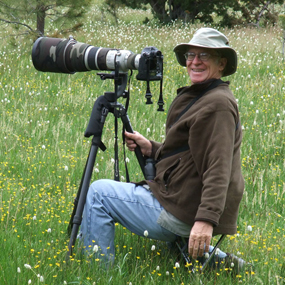

Join BirdNote tomorrow, November 30th!
Illustrator David Sibley and actor H. Jon Benjamin will face off in the bird illustration battle of the century during BirdNote's Year-end Celebration and Auction!
More than 1.5 million Eared Grebes, 30% of the North American population, gather at Mono Lake each fall. But as late as the 1990s, the lake was gravely threatened by the diversion of its water to Los Angeles. After years of court battles, Los Angeles, the lake's advocates, and concerned scientists came to a balanced solution. While the lake will take another twenty years to regain the water level now guaranteed by law, for legions of Eared Grebes and other birds, the story of Mono Lake looks like a conservation success. Learn more at MonoLake.org.
BirdNote®
Mono Lake – Finding a Balance
Eared Grebes Gather by the Million
Written by Bob Sundstrom
This is BirdNote.
[Calls of Eared Grebes large numbers]
In early fall, California’s Mono Lake bears witness to an amazing natural spectacle. More than 1.5 million Eared Grebes, or 30% of the North American population, gather here.
[Eared Grebes calls, multiplied to imply large numbers]
For two to three months, these diminutive water birds feed on the abundant brine shrimp that thrive in the huge alkaline lake. During this time, the grebes will more than double their body weight while undergoing a complete molt. [Call of an individual Eared Grebes] And by early winter, they’ll be ready to migrate in a nonstop flight to more southerly regions.
Mono Lake represents a vital resource for Eared Grebes and a vast number of other water birds. But as late as the 1990s, the lake and its crucial habitats were gravely threatened by the diversion of its water to Los Angeles. After years of court battles, the parties, including the lake’s advocates and concerned scientists, came to a balanced solution.
While the lake will take another twenty years to regain the water level now guaranteed by law, for legions of Eared Grebes and other birds, the story of Mono Lake looks like a conservation success.
[Eared Grebes calls, multiplied to large numbers]
Today’s show brought to you by the Lufkin Family Foundation.
For BirdNote, I’m Michael Stein.
###
Sounds of the birds provided by The Macaulay Library of Natural Sounds at the Cornell Lab of Ornithology, Ithaca, New York. Calls of flock of Eared Grebes 133198 recorded by G.F. Budney. Call of individual recorded by R.S. Little 106819.
Producer: John Kessler
Executive Producer: Chris Peterson
© 2014 Tune In to Nature.org September 2014 Narrator: Michael Stein
ID# SotB-monolake-EAGR-01-2011-09-13






